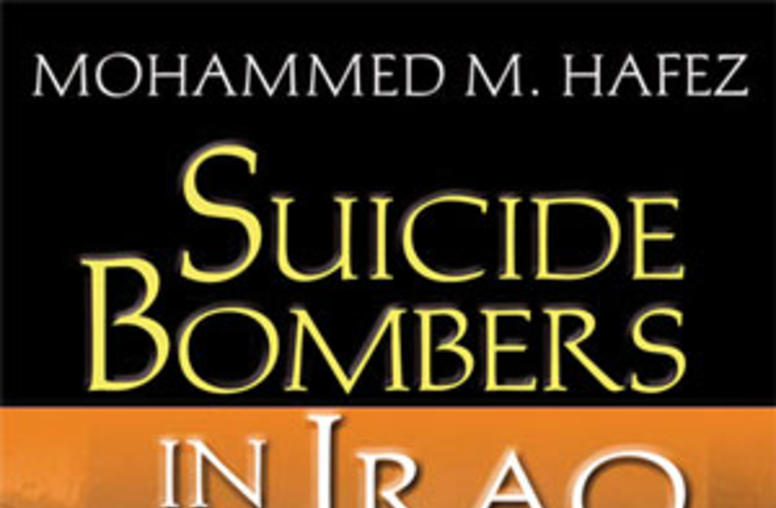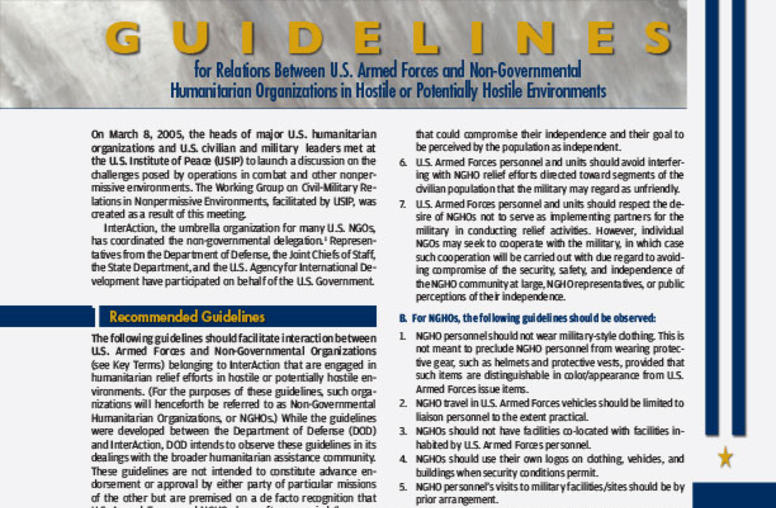Publications
Articles, publications, books, tools and multimedia features from the U.S. Institute of Peace provide the latest news, analysis, research findings, practitioner guides and reports, all related to the conflict zones and issues that are at the center of the Institute’s work to prevent and reduce violent conflict.
Constituent Assembly Elections and Security in Nepal
What are the security challenges Nepal faces in the run up to the November 2007 constituent assembly elections? Lack of resources, the need for training and retraining, violence in the Terai (plains), and increased crime and lawlessness are only a few of the challenges identified through a series of meetings and group dialogue sessions held by USIP.
Public Health and Conflict in Iraq
On March 22, 2007, the U.S. Institute of Peace (USIP) and Johns Hopkins Bloomberg School of Public Health (JHSPH) Task Force on Public Health and Conflict held its third symposium, Iraq: Rebuilding a Nation’s Health. The Task Force is committed to raising the profile of conflict analysis and resolution in the field of public health education.
Journey of Death: Suicide Bombers in Iraq
Over the past four years, suicide bombings have become a choice weapon of the insurgency in Iraq. Today, terrorists and insurgents perpetrate suicide attacks regularly, taking a profound physical and psychological toll on the local population and the multinational forces serving in the country.

Suicide Bombers in Iraq
Author Mohammed Hafez examines the history of suicide bombing in Iraq, theoretical perspectives on suicide bombing, the varied factions that comprise the insurgency and the ideology and theology of martyrdom supporting suicide bombers in his new book Suicide Bombers in Iraq.
Suicide Bombers in Iraq
USIP grantee Mohammed Hafez briefed staff on the House Foreign Affairs Committee and the Senate Foreign Relations Committee on his recently USIP-published book Suicide Bombers in Iraq: The Strategy and Ideology of Martyrdom. Hafez is a visiting professor at the University of Missouri, Kansas City.
Building Democracy in Burma
This report was commissioned by USIP's Center for Conflict Analysis and Prevention. It draws on the deliberations of prominent U.S. and international academics and NGO/IGO representatives on how the international community can prepare itself to support the inevitable future political transition in Burma. Read Priscilla Clapp's Special Report, Burma's Long Road to Democracy, published in November 2007.

Guidelines for Relations Between US Armed Forces and NGHOs in Hostile or Potentially Hostile Environments
Developed in concert with the Department of Defense and Interaction (the umbrella organization for major American humanitarian non-governmental organizations), these guidelines address how the US military and US non-governmental organizations should behave towards each other in non-permissive environments like those in Iraq and Afghanistan.
Confronting the Truth (DVD)
Confronting the Truth shows how countries, which have experienced massive human rights violations, have created official, independent bodies known as truth commissions.
Healing and Reintegrating the Victims of Congo’s War
Child soldiers and women are among the most vulnerable victims of Congo’s war. Attending to their needs for reintegration, counseling, and medical attention are critical components for consolidating peace.
Rebuilding Civil Society in Afghanistan: Fragile Progress and Formidable Obstacles
Nearly six years after the U.S.-led invasion of Afghanistan, efforts to develop civil society are showing tentative signs of progress. The effectiveness of civil society in influencing development in the provinces remains low, and rising insecurity in many regions threatens the future prospects of the nascent Afghan civil society.